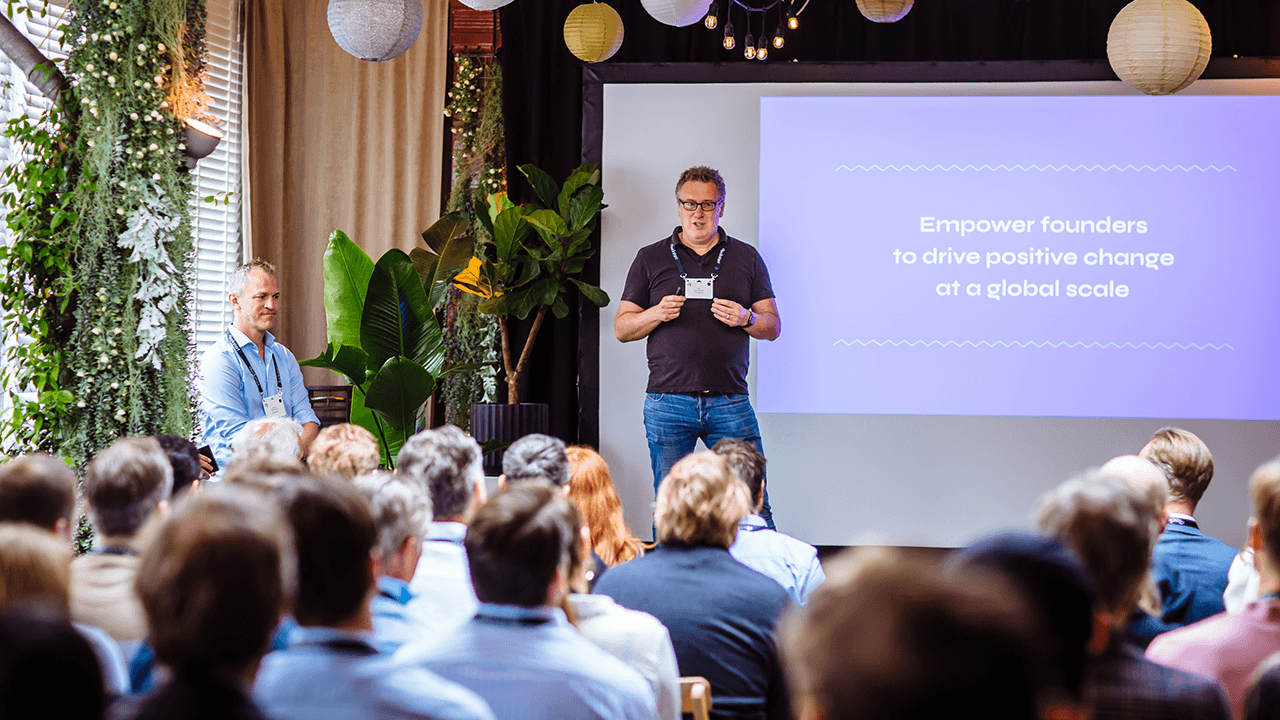Saving the world is no easy task, but that doesn’t mean there’s a shortage of established and upstart companies taking their best stab at it. For the incumbents, particularly those with large chequebooks to draw from, the capital powering the innovations to make these changes might be a bit easier (albeit perhaps with far more red tape) to come by; for startups, the story is a bit different.

While 2023 has proven to be vastly different than the staggering amounts of capital being jostled about in 2021, Rockstart Energy fund’s managing partner Max ter Horst believes that when it comes to saving the planet, the energy sector might be our best option, and has more than a few reasons why.
Following the announcement of a €27 million fund closed in March of 2022, Rockstart’s energy fund has invested in 34 companies across 10 countries to date, all having participated in Rockstart’s accelerator programme and include Sympower and Dexter.
With the aim to invest in 50 startups, Rockstart’s energy fund is well past the halfway mark, and from what Max ter Horst tells Tech.eu, that number of 34 will be increasing soon.
“At the end of next year we’re coming to the end of our investment phase, meaning, we can’t take on any new startups with this fund, but we can still continue investing,” says ter Horst.
To the untrained eye, a quick pass of the maths would break down €27 million deployed across 50 investments would be €540,000 each.
However, ter Horst explains further, “There’s always the funnel. We start with 50 startups and then there’s a certain fraction that will become seed investments, the typical round after an accelerator, and then a fraction of that will get a series A round investment, and a fraction will get a series B round investment.
So what you see with series B round investments, a minority, we can invest up to €2.5 million per startup.”
Call for Applications
While not quite over the finish line yet, Rockstart’s energy fund has an active call out for applications, with the programme this time seeking, but not limited to, startups focusing on four key sectors: asset life extension and circularity, installation efficiency and service, climate risk mitigation, and long-duration energy storage. Other clean energy and climate startups are also welcome.
While some of these topics are self-explanatory, others are a bit more complex. Max ter Horst further clarified, “At the end of the day, for us, it’s really about carbon abatement. What we’re not doing is oil and gas, that’s for sure.
Having said that, there are a couple of areas of specific interest that we are now listing in the run-up for fund number two, and once you’re doing this, you can obviously use it in your current fund selection. A couple of them are asset life extension and circularity.
We expect current energy sector dependencies to increase rather than decrease, for example, rare earth metals. If the price of these rare earth metals increases by 1,100 percent in one year, then yes, circularity becomes extremely profitable.”

Fund II
Rockstart’s first outing with its energy fund isn’t quite finished yet, but as alluded to above, ter Horst and his team are already starting to eye a second iteration of the fund.
Despite lowered figures in many sectors and stages, Rockstart is, to be expected, aiming higher for its second fund, at least double according to ter Horst. While the process is daunting and full of its ups and downs, ter Horst says he’s looking forward to it, adding with a laugh, “Although, I’m sure in the middle of it …”
He says that in early-stage investments we’re currently looking at a shift in sectors, whereas in the past fintech, SaaS, and maybe crypto were the name of the game, right now, energy is one of the top categories on investor’s minds.
“In the energy domain, we don’t really experience this downturn in capital flows. But that’s also because we’re early stage and that we’re in a counter-cyclical industry at the moment,” says ter Horst. “Higher energy prices mean that maybe some business cases that would normally require a bit of subsidy to get off the ground now can run by themselves. This actually makes life easier for a number of our startups to help them scale their technology.”
The Rockstart energy fund is accepting applications for its Spring 2024 cohort until October 6.
Lead image: Arjen Hooij



Would you like to write the first comment?
Login to post comments